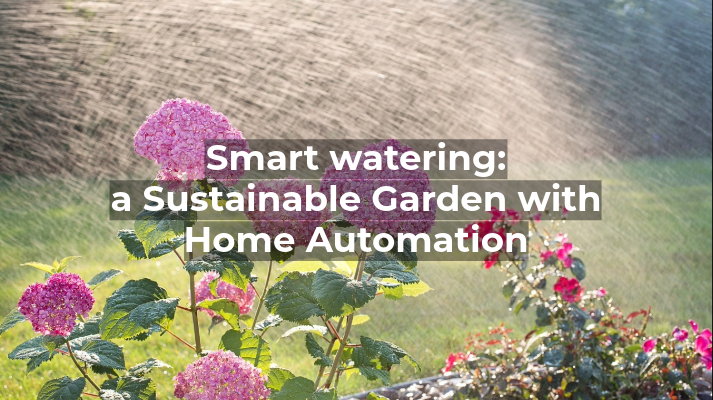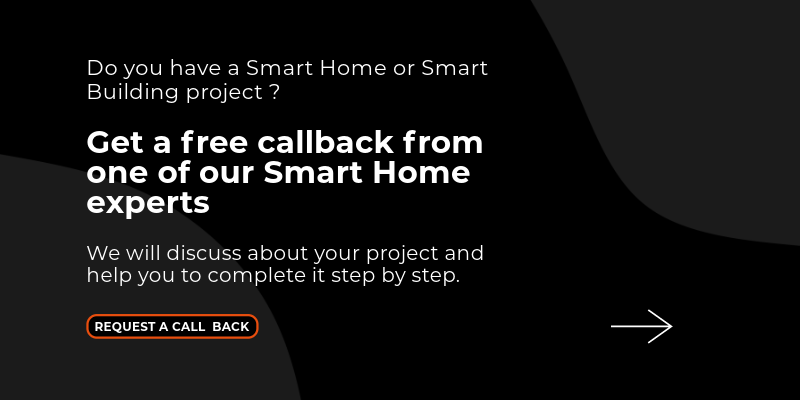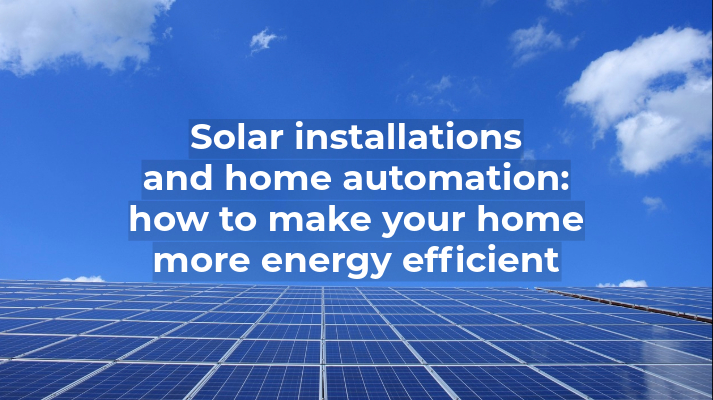In recent years, home automation has revolutionised many areas of our lives, facilitating everyday activities and improving the energy efficiency of our homes. One area that has benefited enormously from this innovation is smart watering because it combines technology with the experience of traditional irrigation systems. Find out what benefits an irrigation system in general and smart watering in particular offers and why an irrigation system makes your garden more sustainable.
Garden irrigation system: which one to choose?
An irrigation system has the enormous advantage that, being automated, you no longer have to water by hand. But which type of system to choose? Two of the most common and sustainable options are drip irrigation and sprinkler irrigation. Both systems offer numerous advantages in terms of water efficiency and sustainability.
1. Drip irrigation
Drip irrigation, or localised irrigation, is a method that delivers water directly to the roots of plants via tubes or hoses with small water outlets. This system allows water to be delivered in a targeted and controlled manner, providing an adequate amount of water to the plants without wastage. Some of the advantages of drip irrigation are:
- Water efficiency: drip irrigation significantly reduces water consumption and waste as water is delivered directly to the roots of the plants.
- Weed reduction: With this system, water is supplied only to the desired plants, reducing the growth of weeds that can compete with cultivated plants.
- Reduction of plant diseases: drip irrigation avoids water stagnation, which causes fungi to proliferate and plant roots to rot.
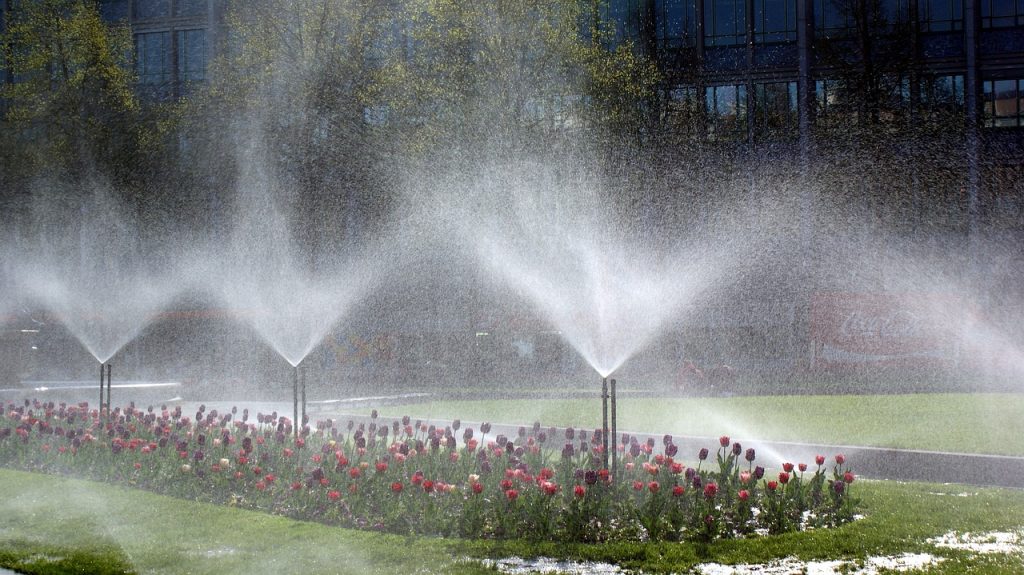
2. Sprinkler irrigation
Sprinkler irrigation is a system in which sprinklers or water jets are buried in the ground and release water above the surface of plants similarly to rain. This type of system offers several benefits:
- Uniformity of watering: Thanks to the strategic arrangement of water jets, sprinkler irrigation can cover a large area and ensure uniform water distribution..
- Soil adaptability: Sprinkler irrigation systems can be customised to suit specific soil and plant requirements. Water flow, angle and coverage area can be adjusted to maximise water efficiency.
- Less evaporation: Unlike other irrigation systems, sprinkler irrigation minimises water evaporation, as water is released closer to the soil and plant roots.
What are watering timers for?
To automate your irrigation system, you may need a watering timer or controller. All controllers, from the simplest to the most high-tech, have the same basic functions:
- You can automate your watering system
The main advantage is that you no longer have to water by hand.
- You can programme irrigation
The watering timer allows you to programme the times and duration of watering
- You can divide your garden into different zones
For example, you can choose to water the hedges and vegetable garden with drip irrigation and the lawn with sprinkler irrigation.
If you have a home automation system, you do not need aa watering timer
Both drip irrigation and sprinkler irrigation can be integrated into your home automation system without the need for a watering timer or controller. By using the intelligence of your smart home system you can manage irrigation, together with all other home automation functions, from a single display, further optimising water consumption. Through real-time data monitoring and automation, you can set the times and schedules of your smart watering and the amount of water according to the needs of the various zones in your garden – even remotely.
What are the benefits of a smart watering system?
Water is a precious and limited resource, and inefficient irrigation can result in significant waste. Smart watering optimises water consumption in the garden, ensuring that plants receive the exact amount of water they need, without waste. Using advanced sensors and algorithms, smart irrigation systems are able to detect soil moisture, rainfall and other environmental variables to regulate irrigation efficiently. This means that water is used only when needed and in the appropriate quantity, thus reducing water consumption and associated costs.

Here are the main functionalities of smart watering
1. It can detect soil moisture in real time
Sensors in the soil constantly monitor the moisture level, sending data to the central control system. This allows the system to automatically adjust irrigation, activating it only when the soil is dry to the right degree. This feature prevents over-watering, which can damage plants and waste water..
2. It is able to detect rain
Rain sensors allow the system to temporarily interrupt irrigation when it is raining, optimising the use of natural water resources. In addition, some smart watering systems can predict rainfall: they adapt to weather forecasts, estimate water needs and schedule irrigation accordingly!
3. It takes into account the specific needs of your garden
Last but not least: its functionality allows irrigation to be adjusted according to the specific needs of different areas of the garden.
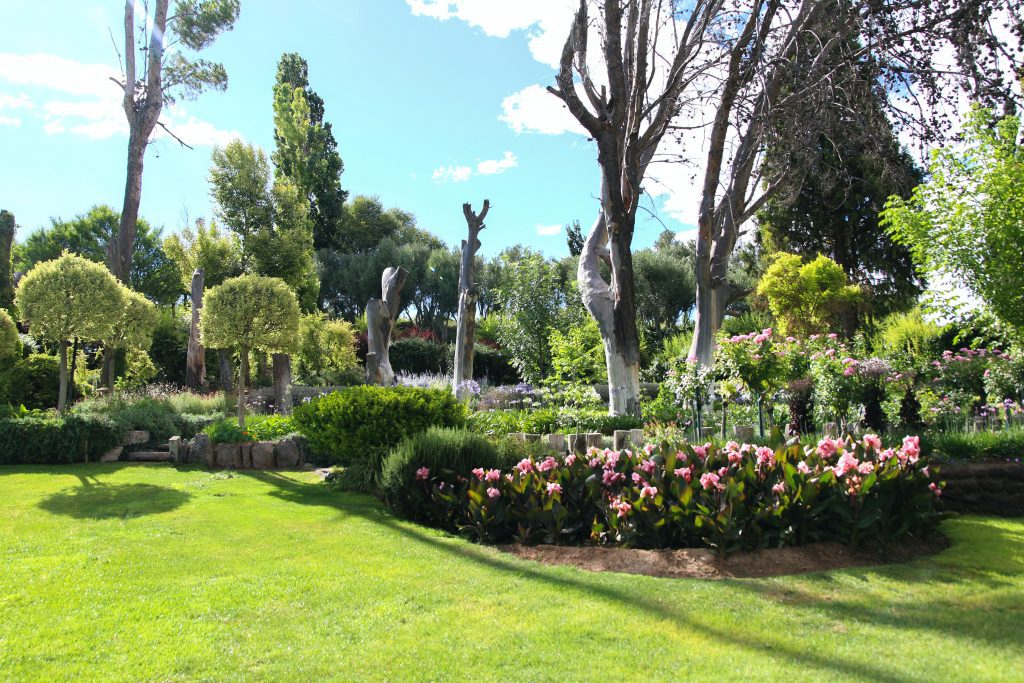
4 Practical tips on how to customise your domotic irrigation system
Customising a smart watering system can ensure even more efficient water management in your garden. Here are some practical tips for optimising your system:
1. Assess the needs of your plants
Each plant has different water requirements. Make sure you know the watering needs of your plants and adjust the system accordingly. You can create different watering zones with customised settings to meet the specific needs of each plant.
2. Take advantage of flexible scheduling
Flexible scheduling allows you to set specific watering times and durations for different areas of your garden. For example, you can set a more intensive watering for sunnier areas or adjust the watering duration according to the moisture detected by the sensor in the soil.
3. Integrate your home automation system with additional sensors
In addition to humidity and rain sensors, you can integrate other sensors into your smart watering system. For example, you can use sunlight sensors to regulate irrigation based on the amount of sunlight your garden receives.
4. Constantly monitor and adjust the system
Don’t forget to regularly monitor your smart watering system to make sure it is working properly. Check sensors, valves and connections for any problems. Also, take time to analyse the data collected by the system: make any necessary changes or adjustments to improve irrigation efficiency.
Summing up – what are the benefits of smart watering?
In conclusion, smart watering helps you manage your garden in a more sustainable way by making more efficient use of water resources.
- Through the use of sensors, advanced algorithms and home automation features, irrigation can be adjusted according to the real needs of the plants, reducing water waste and associated costs.
- The ability to detect soil moisture and rainfall allows the necessary water to be supplied to plants only when needed, avoiding over-watering.
- Smart watering protects plants from damage and disease, as well as reducing water consumption.
Want to know how to save water in your home? Read our blog article “Home automation: an essential tool to reduce water consumption!”
